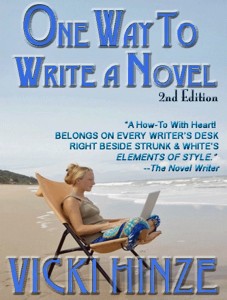Writer-to-Writer Questions about Facebook
I’ve been on deadline–still am on, though now on a different book–hence not posting as much as usual. But I’ve gotten a cluster of questions from you, so I thought I’d address them here. They’re all questions on writers and Facebook.
Q. Which is better for a writer: a personal account or a Facebook page?
A. There are advantages and disadvantages to both.
On a personal page, you are limited to 5,000 “friends.” The personal page is designed for personal use and not professional use. So if the focus of the page is about you, the writer, and the books you publish, using a personal page for this purpose is a violation of the terms of service. That can result in your account being closed/deleted.
Now if this personal account is about you, the human being who is a writer and you’re interacting on a multitude of things and occasionally post about your book and/or writing, that’s normal conversation and a case can be made on that.
Facebook has a “subscriber” status also. Which means after you max out the 5,000 friends, others can subscribe.
You have the ability to message each individual, but not the ability to send one message to all friends and subscribers at once. That can be problematic.
The Page option is the appropriate place to have your writer’s account. There, you can talk about your books, writing, and you can message everyone at one time for major events. Obviously, you don’t want to overuse that and fatigue those who “Like” you.
Pages have applications available for use that are beneficial to writers also. Feed in your blog and add other pages. For example, you might have a “LIKE GATE.” This is a special page that those who have not already liked your page “land” when they come to your page. It typically has a nice welcome message and maybe some books, and invites the person to “Like” your page.
Readers are not overly fond of Like gates. Typically, they click not on like but on the wall tab to go directly to the wall.
Remember that people on Facebook aren’t interested in watching commercials. They’re there to be social and to interact. The place they go to do it is the wall.
Now on these other pages, you might put coming releases, or new releases, or your YouTube channel or various other things. There are a variety of apps available for this. I have some of these pages on my vicki.hinze.author Facebook page.
I also asked visitors to my page for feedback. They’re terrific about answering questions for me and I really listen to what they have to say.
The majority of them do not visit the other pages. They visit the wall.. They’re there to see what’s up and to see what subject we’re discussing today. They enjoy the informal chatting.
There are good lessons in that for any who care to hear them.
So the answer is it depends on what your purpose is for the page. If it’s about your books and writing, go with a Page. If it’s to interact with friends and family, and you want to message individuals and get messages from individuals, then go with a personal account.
I have both because I do both on Facebook.
Q. Can I make someone else an administrator on my Facebook account?
Yes, you can. Many writers have an assistant who helps them with their accounts. Understand that when you do this, you should be judicious. (Read that paranoid.) Why? Because it is your account and you’re responsible for what happens on it. You will be held accountable. A trusted assistant, okay. Others? Mmm….
At one time, as the account owner, you could limit another administrator’s access to specific parts of your Facebook account. Now, an administrator has full access. So that individual can data mine, alter, change, delete or add anything of his/her choosing at will—including your actual account or that that which violates the terms of service, for which you will be held accountable. So by giving unfettered access to another, you could do nothing further and still lose your account.
Most developers of apps and such don’t ask or want to be administrators anymore. They’ll send you the information and instructions to use their apps but they don’t want to be added as an administrator on your account. Frankly, they don’t want the liability
So, can you have someone else as an administrator? Yes. Should you? Only you can decide that, but writer-to-writer, my advice is to be extremely prudent. (Read that paranoid, too.)
Q. How can I get people to “Like” my page?
Well, some say to take out ads. I’ve done that, but with mixed results. You see, it’s not quantity you’re after; it’s quality. You want people to visit your page who actually want to be there. People who are interested in what’s going on, in the conversation. You want to welcome people into your writing world, of course, but by engaging them in the things they want to engage in.
If the numbers are empty, they’re of no value to you. Your interest needs to be in the people behind the numbers. Are you interested in them? In what they think? In their lives? Do you hard sell your visitors or chat with them? Which would you rather do—from the receiving end? See what I mean?
Do you visit other people’s pages? Leave comments and engage in their conversations? Do you show your interest?
Being genuinely interested in others does build your numbers. It’s a slow process because you’re building organically. But I’ll tell you something. I’d rather have a small number of organic “Likes” on my page than enormous numbers of people just there that I don’t know.
A conversation or engagement has two sides: Listening and chatting. And, while I can’t speak for anyone else, I can tell you for fact, there are some amazingly interesting, resilient and smart people who hang out on my page. We’re apt to talk about anything—and we do.
I have a few rules and everyone knows them. Say what you will, provided you treat everyone with respect. No foul language. And say nothing you wouldn’t say in front of a teen because odds are good you are. (I mentor minors and they join us on the page, too.) That’s about it. So we have a broad canvas of discussions. Some are funny; some are serious. We talk life, death and universe stuff all the way to everyday everything. I’m interested. They know it. And it’s fun.
So I hope that’s helpful advice because it might be your approach that’s problematic. If you’re just pushing people to buy your book, that’s a problem because there’s nothing social in it. If you’re holding contests for those who like your page—well, you shouldn’t be. Facebook doesn’t allow that anymore, though I do occasionally see where a contest is being held with a disclaimer that Facebook is in no way involved. The most I personally do on that is link to another site where one of my contests is being held, and there’s not a condition on entering. Everyone is welcome.
To me, the best way to build your list is to engage. That takes time, but it’s organic and authentic, and it’s fun.
Q. I don’t like the TimeLine. Can I keep my old format?
Last I heard, going to Timeline was compulsory. So unless there’s been a recent change on policy, you’ll have to switch over. I will say to try to make the switch with grace because it’s healthiest for you not to stress out over this stuff and to hang on. Facebook is constantly changing and evolving. Odds are good they’ll make changes you like—probably just about the time you learn to use the system in place. J That’s what typically happens on everything, isn’t it?
Q. I migrated to a Page from a personal account and I don’t like it. Can I migrate back?
I feel your pain. I understand your desire. I share it. As of a few months ago, no, you couldn’t migrate back. You could open a new personal account and start over. Unless something’s changed, well, read the response about grace and hanging on in the question above.
Q. I want to do a Facebook Ad. What’s the difference in impressions and clicks? And do I have to bid the minimum they recommend?
An impression is where an image of your ad shows up elsewhere on Facebook. Theoretically, it means that others have had an opportunity to see your ad.
Clicks are when someone sees an impression of your ad somewhere on Facebook and actually clicks on the ad.
You bid what you choose to bid. The recommendation tells you what they suggest you bid to secure the service of them running your ad.
Also, just to be sure you’re aware of it, you can set a daily budget on your ad. It’ll appear until whatever amount you’ve budgeted has been used. When that’s done, it stops appearing until the next day.
Also be aware that Facebook has a really good help section with a ton of information in it. There are guides and tips on successful ads and a lot of insightful information that can help you get the best return on your investment—whether that’s time or money.
If you look on the top of your page, next to “Home,” you’ll see a down arrow. If you click on that, a drop down window appears. At the bottom of it, you’ll see Help. Just click there.
I highly recommend you take a few minutes and just look around and see what all is there.
Also, visit pages and see which ads draw your eye and attention. Which ones you click on, or you fail to notice.
If you’re going to spend your money on this, then do a little research to determine what works well for you. Odds are good that will be the case for others, too.
Blessings,
Vicki
_________________________________________________________________
A SPECIAL NOTE ON ONE WAY TO WRITE A NOVEL
 A short time ago, a reader informed me she had problems with her copy of ONE WAY TO WRITE A NOVEL. We checked on it and the file was corrupt. I have no idea why. But I figured since I was going to have to read it again anyway and to have edits done, I might as well update and expand it. So I have. It’s at Kindle now.
A short time ago, a reader informed me she had problems with her copy of ONE WAY TO WRITE A NOVEL. We checked on it and the file was corrupt. I have no idea why. But I figured since I was going to have to read it again anyway and to have edits done, I might as well update and expand it. So I have. It’s at Kindle now.
I’ve emailed Amazon about sending copies of the 2nd Edition out to all who bought the first. Waiting to hear back from them on that, but you’ll either get a note from them or I’ll let you know how we’re going to fix this.
Hope you enjoy the updated version and sorry for the inconvenience.
Blessings,
Vicki





